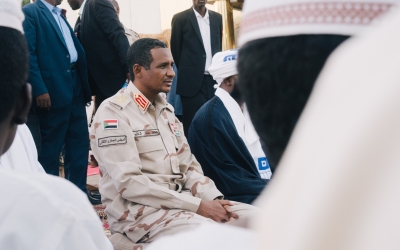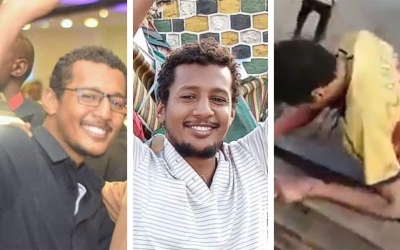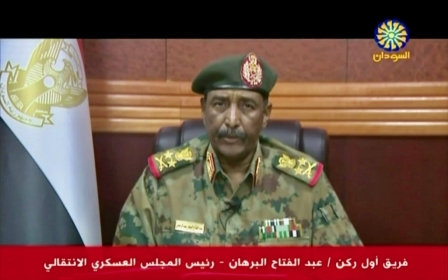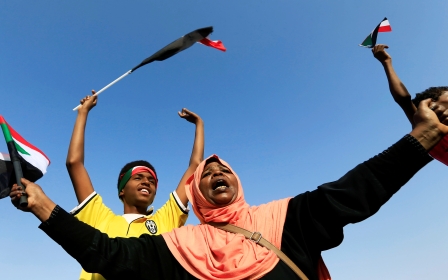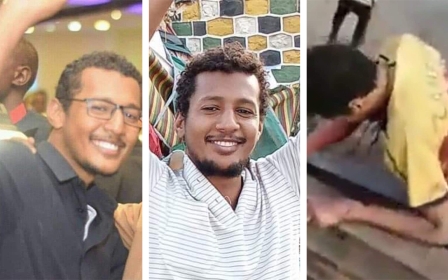Sudan’s resistance committees plot ‘new wave’ of protests against power deal
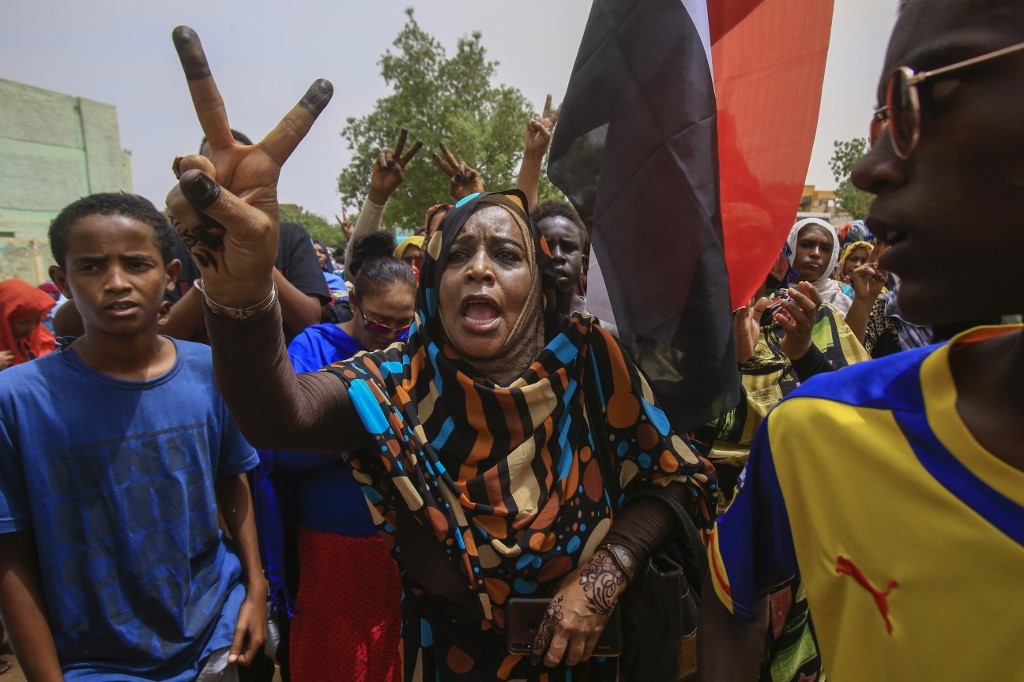
When Sudanese protesters responded to a call for a million people to march against military rule just over a week ago, defying security forces that had killed or injured hundreds in previous weeks, the country’s localised resistance committees were crucial to its success.
Now the position those committees take in a power-sharing deal the opposition has struck with the same military council - after sitting at the heart of a months-long Sudanese protest movement - could be equally as important.
While the activist Sudanese Professionals Association and its allies organised a national strategy and negotiated the deal for a partial handover of power, which many are still suspicious of, it was the resistance committees who ensured daily, localised protests and neighbourhood activities that stretched the abilities of security forces to crack down on protesters.
The various committees have offered a mix of responses to the power-sharing deal that grants the military leadership for nearly two years, yet some are vowing to continue their protest activities. While some are supportive, others do not trust the military council and are worried about losing momentum.
“Though preparations are ongoing to sign the final agreement between the military council and the [opposition] Forces of Freedom and Change... the resistance committees are taking another stance, against the agreement,” political analyst Tarig Osman told Middle East Eye.
New MEE newsletter: Jerusalem Dispatch
Sign up to get the latest insights and analysis on Israel-Palestine, alongside Turkey Unpacked and other MEE newsletters
'Victory or Egypt'
The members of the opposition who negotiated the deal on behalf of the opposition coalition have celebrated their agreement, organising community meetings to explain it to a public that has protested since December; first against three-decade ruler Omar al-Bashir and then the military council that replaced him.
But questions remain over whether the power-sharing deal delivers on the demand for civilian rule. The rotating leadership of a joint military and civilian council is to remain with the military for the first 21 months.
Doubt has also been cast over whether an investigation into the killing of more than 100 protesters on 3 June will truly be independent. The man blamed by most, Mohammed Hamdan Dagolo, known as Hemeti, is the military council’s deputy president.
Among the doubtful, the catchphrase “victory or Egypt” has begun to spread, referring to how the demands of Egyptian protesters were used by current Egyptian President Abdel Fattah el-Sisi to carry out a coup in July 2013.
“This agreement doesn’t consider us or even our demands,” said Waleed Omer, a leading member of the resistance committees in Omdurman, one of Khartoum’s two sister cities.
“We haven’t been consulted and we haven’t been represented so we are against it,” he told MEE.
“We don’t care about these political agreements and these compromises. We are preparing for a new
Resistance committees in Khartoum’s other sister city, Bahri, as well as the northeastern city of Port Sudan, have also come out against the agreement and are determined not to lose the momentum built up since December.
A leading resistance committee member, who did not want to be named as the groups generally try to keep their leadership anonymous for security reasons, said that while they coordinate with the SPA, they are also an independent force that will continue to operate within their neighbourhoods.
They said they have successfully built a fluid, decentralised network of activists that has been able to confound Sudan’s intelligence agencies.
“We have no one leadership but we have a wide network and coordination between neighbouring residential areas. Every area has the full right to work according to its own circumstances and security conditions and I believe that this is one reason for our success.”
It is also how they played a crucial role since 3 June in organising protests despite an internet blackout designed to stop activists from communicating with each other.
The committees organised local meetings and rallies and printed out key information on slips of paper they handed out to neighbours.
Protesters received a boost on Tuesday when a court ordered telecoms communities to end the blackout ordered by the government, with the Reuters news agency reporting that some internet users were back online.
Abdel-Adheem Hassan, a lawyer involved in lawsuits challenging the internet cut, said that MTN and Sudani, two of the country's main providers were back online.
Opening doors
Almost 300 Sudanese protesters have been killed since protests began in December, some of them during the violent 3 June crackdown on a peaceful sit-in that built pressure on Bashir, but others were killed in protests in their own neighbourhoods.
The victims are mostly young and the resistance committees say delivering justice for those killed is one of its key demands.
A youth activist said the resistance committees have played a key role in representing young Sudanese, giving them a way to protest and express themselves while also stretching the Sudanese forces who have in the past been able to shut down dissent.
The committees often worked anonymously to avoid being tracked and on a localised level, which meant protests could simultaneously be happening in various parts of a single city.
The activist, who did not want to be named, said all of this appealed to young people who wanted to voice their anger but did not feel represented by the country’s existing political opposition.
“The resistance committees have opened the doors for the first time in Sudan for the participation of those who were silent and outside the political games,” they said. “It has given them the momentum and the inspiration to be part of the revolution and to own their fate and future.”
'One of the main players'
The committees were the product of a long-planned strategy to outsmart the security regime under Bashir’s rule but which only materialised when protests started in December.
Now that they are active, the committees insist on remaining relevant and safeguarding against a power-sharing deal many view with scepticism, fearing the military will renege on its commitment to hand power over to civilians.
“These committees are now one of the main players in the political dynamics of Sudan after the revolution, but the majority of the other active and strong players are trying to avoid their radical positions towards the revolution,” a Sudanese political analyst, working for the exiled Ayin media group, told MEE.
They said both the opposition coalition and the military council need to find ways to engage the youth, who have been the driving force of the protest movement.
“This deal is already fragile as it comes under external pressure from mediators and international envoys. Mistrust between the military and the FFC is also adding other difficulties to its implementation,” the analyst said.
Middle East Eye delivers independent and unrivalled coverage and analysis of the Middle East, North Africa and beyond. To learn more about republishing this content and the associated fees, please fill out this form. More about MEE can be found here.


